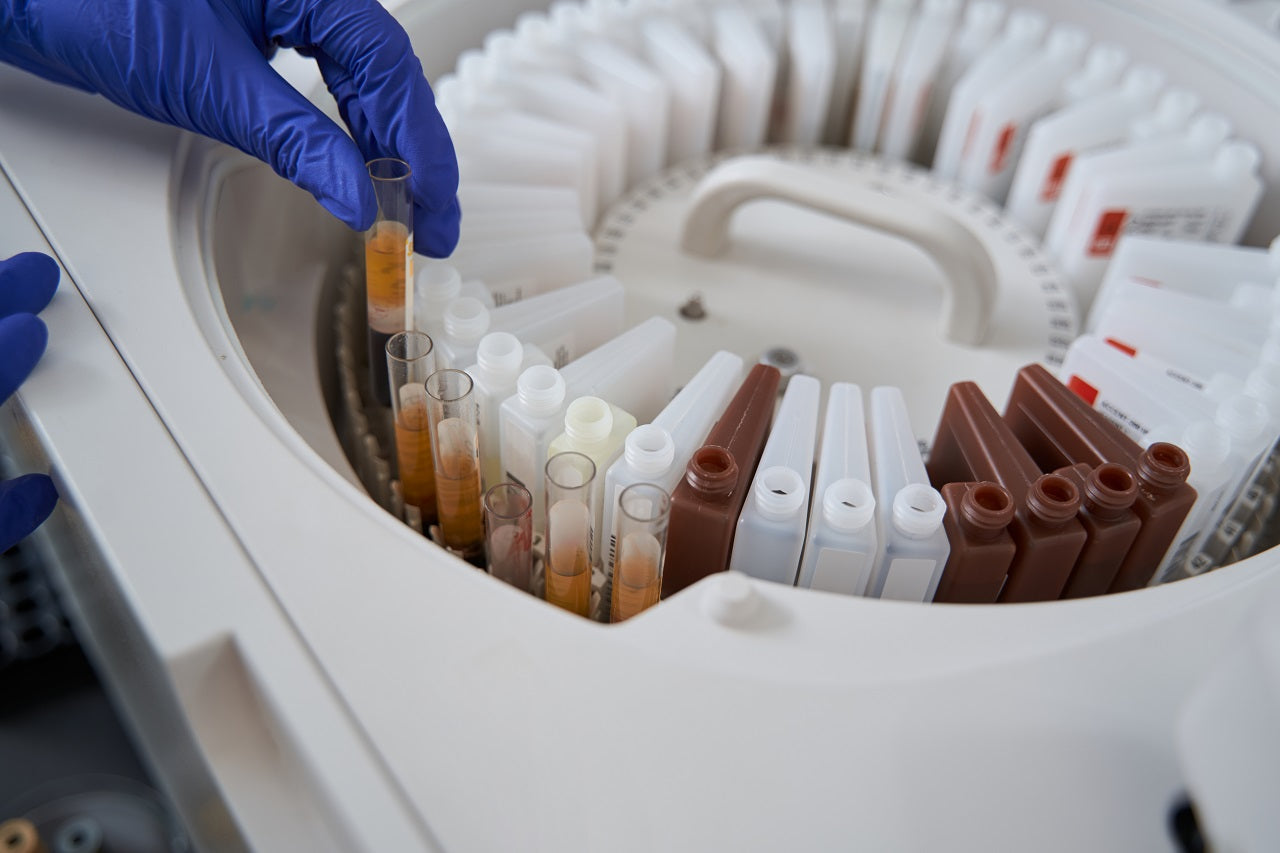
Lipid Panels for Heart Health: A Vital Test
When we talk about protecting our heart health, understanding the key tools at our disposal is essential. One such tool is the lipid panel, a critical test that provides detailed information about the fats in your blood, including cholesterol and triglycerides. These tests are not just numbers on a page; they are vital indicators that help us understand your risk for heart disease and guide us in making informed decisions about your health management.
Lipid panels are fundamental to preventive healthcare because they can detect problems early before they evolve into severe complications. At our center, we emphasize the importance of regular lipid panel testing as part of a comprehensive approach to maintain cardiovascular health. This approach helps us to tailor individual strategies for each person who trusts us with their well-being, ensuring that preventative care is not just a concept, but a personalized plan of action.
What Are Lipid Panels and Why Are They Important?
Lipid panels are essential tests that we provide to measure the levels of various types of fats in your blood. These fats, or lipids, include low-density lipoprotein (LDL), high-density lipoprotein (HDL), triglycerides, and total cholesterol. These components are crucial indicators of your health, particularly heart health.
Understanding the balance of these lipids helps us assess your risk for cardiovascular diseases such as heart attacks and strokes. High levels of LDL ("bad" cholesterol) and triglycerides can lead to the build-up of fats in arteries, which can reduce or block blood flow. Conversely, high levels of HDL ("good" cholesterol) can help remove other forms of cholesterol from your bloodstream. Regular screening through lipid panels allows us to detect potential health issues early, offering the opportunity to manage them effectively before they develop into more severe conditions.
Key Components of a Lipid Panel: Understanding Cholesterol and Triglycerides
The key components of a lipid panel each play a significant role in your body and provide different insights into your health:
- LDL (Low-Density Lipoprotein): Often labeled as "bad cholesterol," LDL can build up in the walls of your arteries, making them narrow and hard. High levels of LDL are linked to an increased risk of heart disease.
- HDL (High-Density Lipoprotein): Known as "good cholesterol," HDL aids in the removal of other forms of cholesterol from your bloodstream, thus protecting against heart disease. The higher your HDL levels, the better.
- Triglycerides: These are a type of fat in the blood, used to provide energy to your body. However, high triglyceride levels can lead to arterial thickening and hardening, which increases the risk of stroke, heart attack, and heart disease.
- Total Cholesterol: This number is the overall amount of cholesterol in your blood, including LDL and HDL. Monitoring your total cholesterol helps us understand your risk of heart disease.
By regularly monitoring these elements of your bloodstream through our testing, we help you maintain heart health and prevent diseases associated with imbalances in these lipids. Understanding each component helps you track changes over time and informs the choices you make in your diet and lifestyle, contributing actively to your long-term health strategy.
How Regular Lipid Panel Testing Can Prevent Heart Disease
Regular lipid panel testing is pivotal in detecting early signs of imbalance in your cholesterol levels, which is a major risk factor for heart disease. By keeping track of these levels through consistent testing, we can identify trends or sudden changes that might indicate an increased risk of cardiovascular issues. Early detection allows us to implement timely interventions that could potentially lower the risk or even prevent the onset of heart disease.
We encourage our clients to undergo regular testing as part of their routine health check-up. By monitoring your lipid levels, we are not only checking for unhealthy levels of LDL and triglycerides but also ensuring that your HDL levels are within a range that supports heart health. This proactive approach can markedly reduce the likelihood of suffering from heart-related complications later in life, by managing potential risks right from the start.
Implementing Lipid Panel Results into Your Health Routine
Once you receive your lipid panel results, integrating the insights into your daily life is key to managing and improving your health outcomes. If your test results show that your cholesterol levels are not ideal, we recommend several actionable steps to help manage these levels:
- Dietary Changes: Incorporating more fruits, vegetables, whole grains, and lean proteins into your diet, while reducing saturated fats and sugars, can positively impact your cholesterol levels.
- Regular Physical Activity: Engaging in at least 150 minutes of moderate aerobic exercise per week can help lower LDL levels and boost HDL levels.
- Weight Management: Achieving and maintaining a healthy weight can help regulate your cholesterol and decrease your heart disease risk.
- Smoking Cessation and Limiting Alcohol: Avoiding tobacco and limiting alcohol consumption can significantly improve your overall heart health.
If lifestyle changes alone aren’t enough, we also provide follow-up consultations to assess whether medication may be necessary to help manage your cholesterol levels effectively.
Conclusion
At our facility, we understand the critical role that lipid panels play in maintaining heart health and preventing disease. By offering regular, reliable testing and comprehensive follow-up care, we not only help you understand your current health status but also guide you in taking proactive steps toward a healthier future.
Remember, managing your cholesterol isn’t just about avoiding illness—it's about enhancing your quality of life, ensuring you remain healthy, active, and full of energy to enjoy your daily activities. Empower yourself with the knowledge and tools to take control of your health. Visit RSC Health today to schedule your lipid panel test and start your journey toward continued heart health and wellness.
